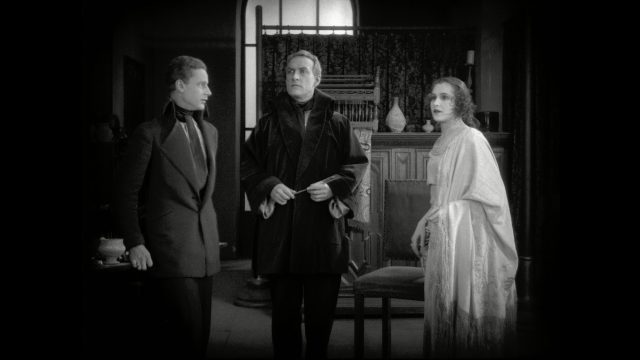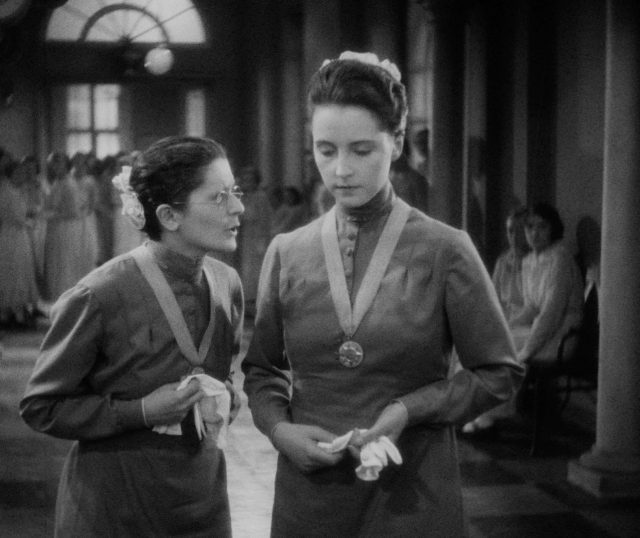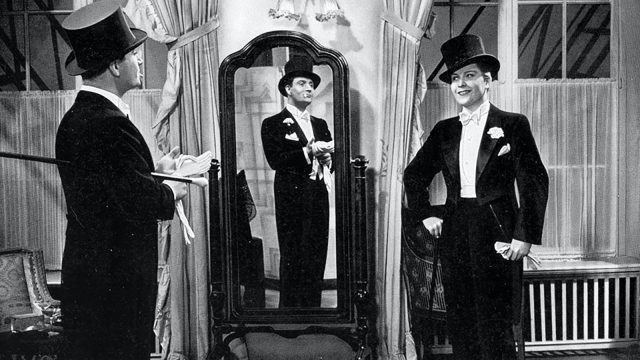Pioneers of Queer Cinema: Black and White and Proud All Over, by David Bax
The post Pioneers of Queer Cinema: Black and White and Proud All Over, by David Bax appeared first on Battleship Pretension.

Even if you only learn about history from the movies (I do not recommend this), you’d still know from films like Cabaret that Germany–and particularly Berlin–was a sexually progressive place before the the Nazis did things like burning the archives of the Institut für Sexualwissenshaft, which had blazed a path for same-sex and transgender visibility since it opened in 1919. Now you can graduate to intermediate studies with Kino Marquee’s virtual cinema release of three new restorations of queer-themed films from the Weimar Republic.
In 1924’s Michael, the gay themes are only technically implicit, with famous painter Claude Zoret’s (Häxan director Benjamin Christensen) feelings for his favorite model, Michael (Walter Slezak), never specifically given a name. You’d have to be in denial or severely sheltered to take them for anything other than romantic ardor, though. As in Martin Scorsese’s similarly premised (but hetero) short, “Life Lessons,” things won’t end well for the power-imbalanced, not-quite couple. Dreyer and cinematographer Karl Freund (who also appears as an art dealer) layer Michael with a sense of foreboding from the very beginning, all of which looks fantastically sharp and clear in this new restoration. Ultimately, Michael amounts to little more than dull melodrama but the prestigious cast and crew make it worth your while.

Kino’s trio really comes to life with Leontine Sagan’s landmark 1931 film Mädchen in Uniform. Focusing on the students of an all girl boarding school and their extra-scholastic devotion to one particular faculty member, it would seem to anticipate Jacqueline Audry’s 1951 Olivia. Both have female directors and all-female casts but this earlier effort is even more explicitly lesbian, with multiple girls openly expressing their love for Fräulein von Bernburg (Dorothea Wieck). In at least one case, that of new student Manuela (Hertha Thiele), the love appears to be reciprocated; von Bernburg loves to give her students kisses on the head but it’s only Manuela who gets a smooch on the lips.
It’s worth putting up with the persistent hiss on the soundtrack of the new restoration because, along with the contagious flush of young lust, Mädchen in Uniform is also a boldly anti-totalitarian parable. The headmistress (Emilia Unda) bears a stubborn view of her charges as “daughters of soldiers and, God willing, soon again mothers of soldiers.” When she proudly describes the students as “raised on hunger,” Sagan cuts immediately to a scene of the girls discussing their favorite types of pastry. The headmistress keeps her version of the school and the real one from colliding by examining any outgoing letters and punishing girls who have written complaints. Under this strict rule, it’s no surprise that the school play (in which Manuela plays Don Carlos, spending most of the second half of the film dressed as a dashing prince) provides an arena for the final explosion of personal expression that both liberates and devastates.

Watching these three films in order of release date means you get to save the best for last. I was aware of Reinhold Schünzel’s 1933 Victor and Victoria only as the source material for Blake Edwards’ knockout, Julie Andrews-starring 1982 remake, Victor/Victoria. Subconsciously, perhaps I never got around to it before because Germany is not widely known for comedies (Toni Erdmann notwithstanding). But consider me humbled by this tale of Susanne (Renate Müller), an aspiring singer on her way up, who meets Viktor (Hermann Thimig), a hammy actor on his way down. While perusing Viktor’s headshots (with an unfortunate close-up of one of him as Othello), she sees a photo of him in drag and learns of a quick way to gain the approval of audiences. She’ll pretend to be a man performing as a woman.
Schünzel, who also wrote the screenplay, has less interest in plot than in having as much fun as possible with his premise. As a result, most of the above decision-making happens offscreen so he can get Müller into a tuxedo and a new haircut as quickly as possible. It turns out there’s more to gender performance than Susanne’s dismissive description of manliness as having only to “drink whiskey, wear pants and pay stupid women compliments.” Still, one of Schünzel’s slyest and best jokes is that, instead of the expected gay-panic moments of men who find her attractive, we see that she draws far more attention from women while dressed as a man than the other way around. Victor and Victoria speeds through so many breathlessly inspired comic set-pieces (including, counterintuitively, a barroom brawl in which all the participants are so drunk that they appear to move in slow motion) that it’s not at all hard to see what caught Edwards’ eye a half century later.
The post Pioneers of Queer Cinema: Black and White and Proud All Over, by David Bax appeared first on Battleship Pretension.
from Battleship Pretension https://ift.tt/37nvk41
via Whole story

Post a Comment